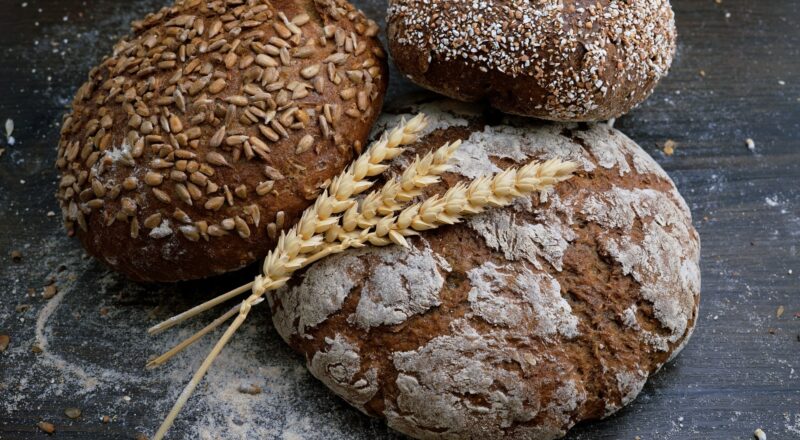When I think of gluten, I automatically think of bread. Gluten is proteins that give bread its texture and can be found in other wheat-based products and baked goods.
Many people choose gluten-free food options but if you don’t have to, maybe you shouldn’t. Gluten actually has many health benefits.
“Many studies have linked whole grain consumption with improved health outcomes,” according to Harvard T.H. Chan. People who ate more whole grains had lower rates in heart disease, stroke, type 2 diabetes, and death versus people who ate less.
Gluten can also act as prebiotic, giving us the good bacteria we need to be healthy. “Arabinoxylan oligosaccharide is a prebiotic carbohydrate derived from wheat bran that has been shown to stimulate the activity of bifidobacteria in the colon,” they provide. “These bacteria are normally found in a healthy human gut. Changes in their amount or activity have been associated with gastrointestinal diseases including inflammatory bowel disease, colorectal cancer, and irritable bowel syndrome.”
Cardiologist Joel Kahn M.D. claims that gluten reduces the risk of colorectal cancer as well. One study showed “how whole grains (containing the gluten family of chemicals) reduce colorectal cancer risk,” he says. “In fact, colorectal cancer risk decreased by 17 percent for each 90-gram-per-day increase in consumption of whole grains” due to the fiber they contain.
You’d miss out on such benefits if you choose to avoid gluten like the plague.
Though all that is good and well, there are situations where gluten can be very harmful to a person.
Consuming gluten is very problematic for people with certain medical conditions like gluten intolerance and celiac disease.
“Some people react differently to gluten, where the body senses it as a toxin, causing one’s immune cells to overreact and attack it,” Harvard T.H. Chan says. “The side effects can range from mild (fatigue, bloating, alternating constipation and diarrhea) to severe (unintentional weight loss, malnutrition, intestinal damage) as seen in the autoimmune disorder celiac disease.”
Individuals with celiac disease can’t process gluten at all and can cause severe digestive problems.
According to Mayo Clinic, “If you have celiac disease, eating gluten triggers an immune response in your small intestine,” according to Mayo Clinic. “Over time, this reaction damages your small intestine’s lining and prevents it from absorbing some nutrients (malabsorption).” And this isn’t the only condition where gluten is a harm rather than a benefit.
Harvard T.H. Chan provides other non-celiac gluten intolerances:
- Non-celiac gluten sensitivity, gluten sensitive enteropathy (GSE), or gluten intolerance— An intolerance to gluten with similar symptoms as seen with celiac disease, but without the accompanying elevated levels of antibodies and intestinal damage
- Wheat allergy— An allergy to one or more of the proteins (albumin, gluten, gliadin, globulin) found in wheat
- Dermatitis herpetiformis (DH)— A skin rash that results from eating gluten. It is an autoimmune response that exhibits itself as a persistent red itchy skin rash that may produce blisters and bumps. Although people with celiac disease may have DH, the reverse is not always true
The National Center for Biotechnology information (NCBI) provides other conditions that don’t necessarily have to avoid gluten but could benefit from a gluten-free diet:
- Schizophrenia and other mental health conditions
- Fibromyalgia
- Endometriosis
- Obesity
- Athleticism
However, they also list potential negative effects from a gluten-free diet:
- Deficiency of micronutrients and fiber
- Increase in fatty foods
- Hyperlipidemia
- Hyperglycemia
- Coronary heart disease
- Increased food costs
- Social impairment
Gluten is a necessary food group and is recommended to be part of our diets unless you have a medical condition that makes gluten harmful to consume. Gluten is beneficial to our health in that it reduces risk of heart diseases and certain gastronomical diseases. So, gluten is good for you–sometimes.
Sources:
https://www.hsph.harvard.edu/nutritionsource/gluten/
https://www.mindbodygreen.com/articles/health-benefits-of-gluten-cancer-heart-disease-toxins
https://www.mayoclinic.org/diseases-conditions/celiac-disease/symptoms-causes/syc-20352220

